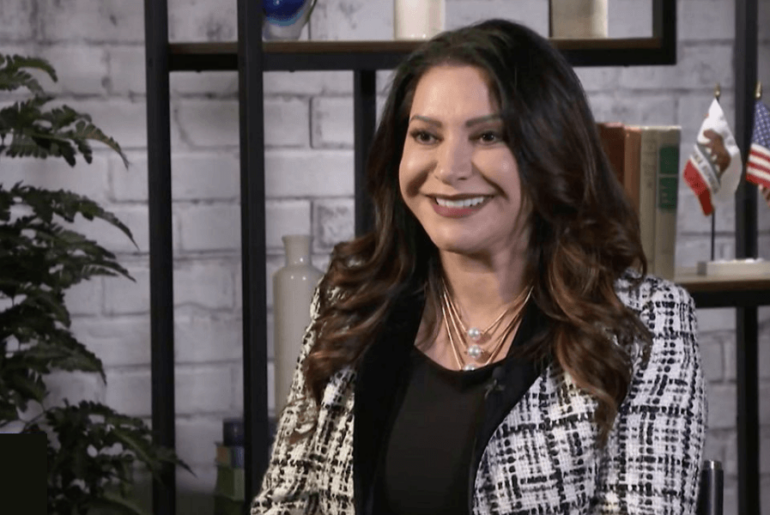Susan Rubio’s life is a powerful example of unbreakable strength. She came from humble beginnings in Juarez, Mexico, where her parents worked hard as farm laborers and housekeepers. Despite her challenges, she achieved great success in California politics. But beneath her impressive accomplishments, is a story of incredible resilience and triumph. In 2013, months into her marriage, Susan was trapped in an abusive relationship. She faced unimaginable hardships, including enduring physical violence, such as beatings and chokings from her partner.
If you or someone you know is facing domestic violence, it is vital to remember that help is available, and you are not alone.
Read Susan Rubio’s survival story, and we will answer the following questions:
- Where is Susan Rubio now?
- What happened to Susan Rubio’s ex-husband?
- How has Susan Rubio’s story inspired others?
- Where can domestic violence victims find support and resources?
- How can friends and family members support someone experiencing domestic violence?
- What legal protections are available for victims of domestic violence?
How Where is Susan Rubio now? I find local organizations offering this assistance near me?
Married in June 2013, Roger Hernandez and Susan Rubio’s relationship quickly turned into a nightmare plagued by domestic abuse. Susan courageously shared her harrowing experiences, detailing “pushing, shoving, hitting, and choking” inflicted upon her by Hernandez during their marriage.
Now divorced from Hernandez, Susan Rubio has moved forward with her life and career. While Hernandez is no longer in office, Susan has risen to become Senator Susan Rubio, a Democrat representing the 22nd Senate District in the California State Senate. She has dedicated herself to advocating for change and supporting victims of domestic violence. As a senator, she successfully introduced a bill that became law in 2020, extending the statute of limitations on domestic abuse cases. This legislation aims to provide further justice and protection for victims.
What happened to Susan Rubio’s ex-husband?
After being served with a restraining order for domestic violence during the divorce proceedings and his congressional campaign, Roger Hernandez faced consequences for his actions. He was stripped of his committee assignments when a Superior Court judge found Rubio’s claims credible and ordered Hernandez to stay away from her for three years. In response, Hernandez took a medical leave of absence and dropped out of his congressional race. As his term in the Legislature ended, his political career ended.
How has Susan Rubio’s story inspired others?
Susan Rubio’s story has inspired others who have faced domestic violence. She introduced Senate Bill 273 to improve officer training for domestic violence cases and extend the time frame for prosecuting abuses with new evidence. She aimed to empower survivors, giving them more time and support to address their struggles and seek justice against their abusers.Additionally, by sharing her own experiences, Rubio has created a platform for others to come forward and share their stories. This has fostered a sense of solidarity and support among survivors, encouraging them to break their silence, seek justice, and find the strength to confront their situations.
Where can domestic violence victims find support and resources?
Victims of domestic violence can find support and resources through various organizations and services. Here are some options for seeking assistance:
National Domestic Violence Hotline: provides support and resources 24/7 and can be reached through various contact options:
- Call: 1-800-799-7233
- Chat: Live chat support is available HERE.
- Text: Send the message “START” to 88788 for support.
Housing Assistance: The Continuum of Care (CoC) Homeless Assistance Program supports individuals escaping domestic violence. The CoC Program provides housing assistance to all residents regardless of citizenship status or income. Staff members are trained to identify and respond to abuse while promoting awareness about domestic violence. Contact your local housing programs using the Public Housing Agency contact information page to apply.
Esperanza United: Provides support and assistance to Latino victims of domestic violence. They offer counseling, legal advocacy, safety planning, emergency shelter, and outreach services. They can be reached through their website or by phone.
- For Minnesota residents, contact their 24-hour bilingual crisis line at 1-651-772-1611.
- If you do not live in Minnesota, contact the National Domestic Violence Hotline 24 hours a day at 1-800-799-7233.
Local resources: Local domestic violence shelters provide safe accommodations, counseling, legal assistance, and other essential resources for survivors. To find your local domestic violence shelter, you can take the following steps:
- Search online: Use search engines such as Google or Yahoo and enter keywords like “domestic violence shelter” along with your city or region name. Look for websites or directories that provide information on local shelters.
- Call the National Domestic Violence Hotline at 1-800-799-7233. They can provide you with contact information for local shelters based on your location.
- Contact local police departments or healthcare providers, such as hospitals or clinics. They may have information on local shelters and can guide you to the appropriate resources.
How can friends and family members support someone experiencing domestic violence?
Friends and family members can provide vital support to someone experiencing domestic violence. Here are five ways to offer assistance:
- Creating a safe space: Be non-judgmental, listen attentively, and believe their story.
- Showing care and empathy: Express concern for their safety and well-being.
- Educating yourself: Learn about domestic violence to better understand their experiences.
- Respecting their decisions: Honor their autonomy and avoid pressuring them.
- Connecting them with resources: Provide information about local domestic violence hotlines, shelters, counseling services, and support groups.
What legal protections are available for victims of domestic violence?
Legal protections for victims of domestic violence vary by state. The Women’s Law website has an interactive map that provides state-specific information and resources for victims of domestic violence. By selecting your state, you can find valuable details about laws, such as restraining orders, state statutes, child custody, and support laws. To access the website, click HERE or on the map image below.

